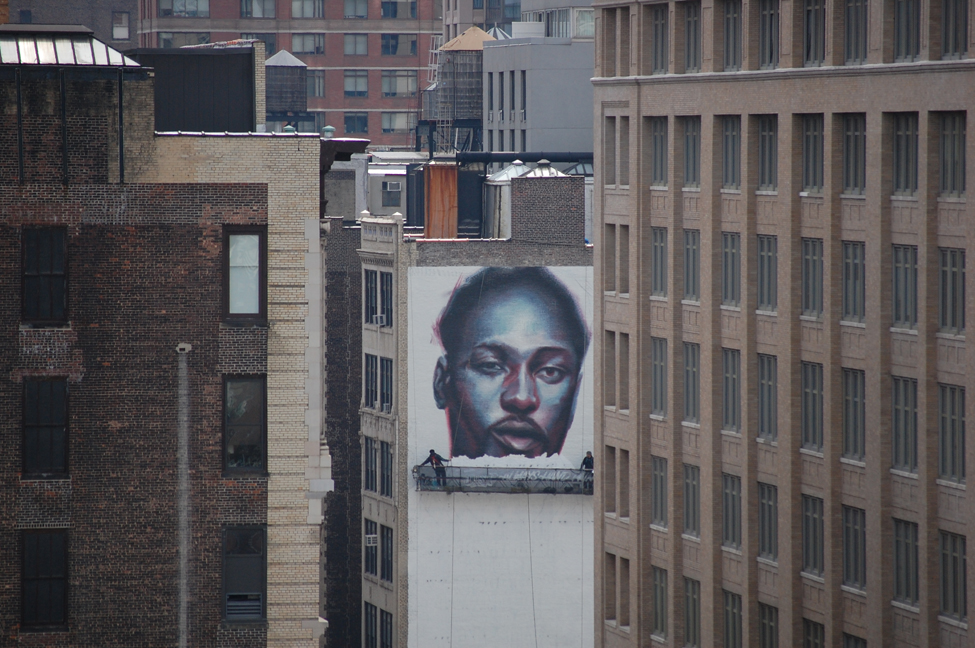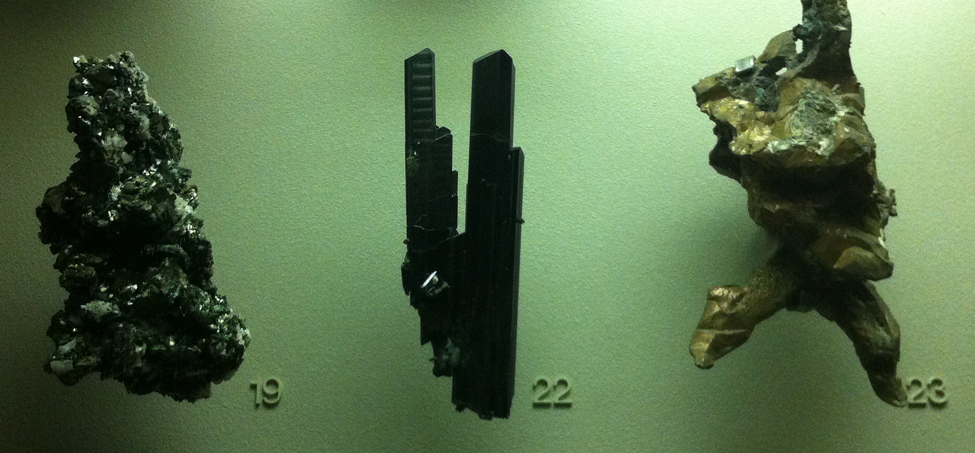XLII
Ask for me tomorrow and you shall find me a grave man, quoth Mercutio.
It is absolutely impossible for Authority or bureaucracy to scent danger as swiftly as does the menaced human being. Authority can scent danger only to itself. It demands a crisis of whatever proportions before the private danger can be perceived as menacing the public safety. For you, or for me, for example the missing child distorts, totally, the universe, but, for Authority, it is a statistic, and for bureaucracy, a detail. Only when these details and statistics begin to multiply is a public danger perceived.
Wrote Baldwin in Evidence…
Don’t (with)hold your breath.
Pedagogy: guidance (nurturance and correction) of the internal and external child.
1893: Destiny in its many manifestations. Seven years after the Haymarket, comes the opening of the World Columbian Exposition aka The White City. Yes, plaster in imitation of marble. And yes, the apotheosis of all that is not colored.
And yes, the “Panic.” And “opening up” of the Cherokee Strip, where a pistol shot precipitates a White wind whistling down the plain.
What’s OK got to do with it?
Feuersteins, meet the Feuersteins…
For a life is controlled and a civilization defined by what each takes life to be. And what we take life to be is what our lives become. Evidence.
Show me what you are – you cannot help but do so, for, finally, civilizations and ourselves are naked and after death our gasses disembowel us – and I will show you what you value. And what you ate for dinner.
No hay camino, ni punto finito.
From the nation of his thousand sons,
old Father Sleep arouses Morpheus,
skillful at simulating human form:
none of his other children were as
capable of copying the ways
men walked, or looked, or sounded when they spoke;
he manifest their clothing too, and knew what words
they would most often use. He specialized
in human beings only: someone else
impersonated beasts and birds and serpents;
the gods refer to him as Icelon,
but human beings call him Phobetor.
A third, Phantasas, has another skill:
he imitates the soil and rocks and waves
and tree trunks, anything without a mind…
The father passed these by and chose from all
his offspring Morpheus to do the task
Iris had ordered…
Which, in Ovid’s telling, was to appear to Alcyone as the phantom of her drowned husband Ceyx, so rather than wait in vain for him to return, she may begin to mourn. [Trans. Charles Martin with slight modifications by E.D.]
… any general knows that no matter how many large pieces of military equipment you field, a war always ends up between man to man on the ground … couple that with the historically known fact that a man OR WOMAN defending their family is 100 times more powerful than a mercenary with the best equipment … why do you think the jesuit rothschild banking new world order morons are desperately trying every trick in the book to disarm the USA ???
This from a recent post appearing on the website of the astronomer James McCanney [he refers here to the “Bundy Ranch Rebellion,” a standoff between a Nevada rancher and his supporters, and federal officials]. McCanney’s ideas of the dynamic forces that drive meteorological and celestial phenomenon may be unconventional, but they are by no means dismissible.
Yet it is amazing how often, when one concentrates all one’s sense and sensibility in one area of pursuit, even and especially the most gifted people separate from the practice of allowing reality to reveal itself – I almost said “herself” – according to its own agency and our capacity to recognize it.
To paraphrase Brecht: If we don’t find the next certain Truth / I tell you we must die…
Well, we will die anyway, Truth to tell, or be told.
And impatience blossoms all year long. Perennial.
The fact that the suspension of judgment may be impossible does not release one from the responsibility of perception.
—J.B. Evidence
A people who trust their history do not find themselves immobilized in it. The Western world is located somewhere between the Statue of Liberty [E.D.: or Ellis Island] and the pillar of salt.
—Ibid.
The limits set by wolves on their carnivorous activities – to not eat all the sheep, for example – are quite different from the limits that would be imposed by the sheep were they the “deciders.”
The System (which includes us) would like us to believe that it is capable of the occasional error, which, when recognized it is both able and eager to correct (thereby affirming at once its benevolence and authority). It would not like us to believe (nor would we), that the System itself is an error.
Yet… whatever else the System may enforce, it cannot enforce our perception of it, or of ourselves, hence – though it may more readily control our actions – it cannot control our judgment, which depends, solely, on our capacity to mobilize and sustain courage. Which depends, ultimately on our capacity for wisdom.
The raw materials of courage may be acquired from many sources, but it can only be cultivated by the individual in the individual. No group or movement can aggregate, therefore, any more than the collective sum of the courage of the individuals that comprise it. Obviously the aforesaid goes for wisdom too.
A writer, notes Baldwin in Evidence, is never listening to what is being said, [s]he is never listening to what he is being told. [S]he is listening to what is not being said, he is listening to what he is not being told, which means that [s]he is trying to discover the purpose of the communication.
It isn’t that one fears. It is how one fears.
Interesting to reverse the polarity of the word “mass.” As in mass production being goods produced by the masses. Or mass murder as murder produced by the masses. Hysteria, Culture, etc. It then becomes useful to inquire into the nature of these productive masses and what the social relations underlying their modes of production are.
There is a common substrate to humanity, a fact which is best ignored if we have an eye to the intense cultivation of particular crops, and the suppression of others.
Some years ago, after the disappearance of civil rights workers Chaney, Goodman, and Schwerner in Mississippi, some friends of mine were dragging the river for their bodies. This one wasn’t Schwerner. This one wasn’t Goodman. This one wasn’t Chaney. Then, as Dave Dennis tells it, “It suddenly struck us – what difference did it make that it wasn’t them? What are these bodies doing in the river?”
—Baldwin, Evidence
Walking, simply walking, one moves beyond a shadow of the dao.
America may not have been the first country to mass produce non-persons – by which I mean biologic human beings who are not so much culturally derived as a consisting of a grab-bag of attitudes packaged as an “identity.” But we have been tremendously successful at convincing others, through a combination of our wealth and aggression, that the oh-so-profitable, abject and needy individuals our factory endlessly cranks out represent nothing less than the goodest and Godest imaginable beings, fit to be worshipped by less blessed folk and emulated to the degree possible given their blighted capabilities.
One might even begin to suspect that the destiny of the United States is not merely to construct history as “bunk,” but to render it universally inconceivable.
Wondrous to behold just how figurative “literal” can be.
We lived, littoraly, by the sea.
Malbec, known in Mendoza as “the French grape.” There, the most complex and concentrated wine, the most amenable to aging, is made by vineyard workers from la melezca, the grapes left over after the harvest. Perhaps they were unripe, or small, growing from a weak branch. But, when they come to maturity, a month or so after the vendage, you have, in your hands, the most immanent qi.
Debt man walking.
New York City distilled to five words: Can I make the light?
No shout in the street.
The collective “I.”
Operative mode of the state and finance:
Strategic lying, tactical truth telling, logistic sleights of hand.
Could one say, in short, that modernity is a process of gradually, and sometimes cataclysmically, substituting symbols for materialities? Of heavenizing all that is earth?
What’s more modern than money?
Bitcoin: all that is solid melts into digits.
Book of the world, pourtant.
Notary public. Not a republic. What ah difference an oh makes.
There are people who are born more or less OK. But then they have hard luck, make the wrong friends, fall into bad habits. And eventually, you have a monster.
And then there are the monsters who are planned.
It is not so much that the truth is ineffable as that we lose our adaptability when we become attached to the truth.
MALCOLM’S VOICE OVER Shit! You think I was about to fight in this man’s army? This man who’s killing me in his uniform, in my country, where I was born? We don’t get killed facing the enemy – we get killed facing him!
(At night: a group of young black soldiers, on 125th Street, some with girls, some finding girls, loud, good-natured, laughing – desperately, and briefly, free.
The rather nervous police – some on horseback.
We follow a black soldier and his girl. They are both a little drunk. They are both laughing.
The girl and the soldier disappear into a hotel.
The street down which we have followed them is quite dark and nearly deserted. We hear music from the neighboring bars, and voices, laughing and calling.
We remain in front of the hotel.
We hear a pistol shot.
The music continues, but the voices cease.)
WOMAN’S VOICE OVER Now, why’d you have to shoot him?
(Her tone is exasperated: her question is reasonable.
People at the windows.
People on the fire escapes.
Children at the windows.
People on the stoops.
Children in the streets.
The voices of women, calling their children.
Swiftly: the faces of many children.
Children being hurried indoors, being hurried up the steps, and thrown into bed; windows being slammed, locked from the inside.
Doors being locked from the inside.
A policeman’s horse, rearing.
Three golden balls outside a pawnbroker’s shop.
A tenement window, with rage, or paper, stuffed in the jagged, broken glass.
A plate-glass window.
The objects in the plate-glass window.
The tenement window.
The plate-glass window.
The plate-glass window is smashed.
Then, another. Then. Another.
The hooves or rearing horses.
Garbage cans, rocks, bricks, indescribable debris, fill the screen.
The heads of horses, moving in.
The faces of people, grabbing, through the plate-glass windows, whatever can be carried.
The Chinese restaurant window, with the sign, “Me Colored Too.”
Clubs, rising and falling.
The people, surging, shouting.
Badges. Holsters. Sirens. Lights.
A sound truck, moving, voices appealing to the people to go home.
A black boy, running with more than he can carry.
He drops an overcoat.
An old woman, in a window, sees this.
She tells the young boy in the window next to her that the coat is just his size.
The boy runs down the stairs and into the streets, and swoops up the coat.
We follow him – or the coat – back up the narrow stairs.
Clubs against flesh; and
The boy trying on the coat before the old lady; and
A pistol being fired into the air; and
Someone going under beneath a club, or a hoof; and
The proud boy, turning in the overcoat.
Dawn. Silence. Devastation.)
Baldwin, describing the Harlem Riot of 1943, from One Day When I Was Lost: A Scenario Based on Alex Haley’s The Autobiography of Malcolm X.
No, no cowardly painter of decals.
Oh, Lord, cleanse that unusual door – I perceive I’m coming through!
Seen oftimes on the 18th Century breast: a floral brooch of diamonds or other precious stones, cunningly wrought with invisible springs, so that, as the bosom of the wearer rose and fell, the glittering flower seemed captive to the breeze. Such was the fashion for bijouterie “en tremblant.”
At the Natural History Museum, you contemplate a breadloaf-sized carbuncle of almandine, found beneath the very streets of your city, at Broadway and 66th Street to be precise, whence lies a fantastic deposit of pegmatites. Could that be why they call the building above it The Jewelyard School?
Perhaps if one dug deeper, one might find a crystal formation of epidote – vernacularly, and metamorphically, known as WorldTradeCenterite.
Thus saith thy Lord the Lord, and thy God that pleadeth the cause of his people, Behold, I have taken out of thine hand the cup of trembling, even the dregs of the cup of my fury; thou shalt no more drink it again.
Sez Isaiah 51:22
Before we came to dig metals out of the earth, we used what fell out of the sky – heated and beaten.
Thus Native Americans took bits of the afternamed Brenham meteorite, which fell, most likely, some time between Christ’s Passion and the invention of the wheelbarrow, near Dodge City, Kansas, and worked them into knives, ear ornaments, chisels, buttons and beads. Some of these traveled, via the Hopewell trade network, as far as a thousand miles from the crater in which they were found, and certain pieces were interred in burial mounds. Meteoric iron contains nickel, and is thus a steel alloy, extremely durable and resistant to rust. Which may or may not go some way explaining the presence of an Indian’s profile on one side of the coins first issued in 1912. On the “B” side, a bison. And the respective words “Liberty” and “Five Cents.”
But goes nowhere toward explicating why if I had written: “heated and beated,” or “heaten and beaten” I might be hung for a shite grammarian. So… an opening volley – shooted, as it whir, over the bow – of an argument to the effect that what we wrongly call “English” is not a language at all, but a kind of semi-vertebrate, or cartilaginous, lexicon. And sometimes a puddle. Which is why, when you heard Gwen, at three, confiding to a friend that her mother was “a good cooker,” you mentioned that another way of saying it was “cook.”
Because sense is where you find it, and sensibility what you make (of) it. And why the upper crust eats only of the better bred bread. Buoy.
What allusive hand or eye…
Round up the unusual suspects.
The museum of alternate modernities: Charles Rennie Mackintosh, Julia Morgan, Rafael Guastavino, Sr. and Jr., Antoni Gaudí, to name only a few. Tanizaki: In Praise of Shadows.
The exploding plastic inevitable.
No, actually, quite evitable.
The future still looks good
And you’ve got time to rectify
All the things that you should
(sang George)
I don’t know, sister,
what I’m saying
nor do no man,
if he don’t be praying.
I know that love is the only answer
and the tight-rope lover
the only dancer.
When the lover come off the rope
today,
the net which holds him
is how we pray,
and not to God’s unknown,
but to each other—:
the falling mortal is our brother!
Sang Jimmy to his sister Paula (“Some Days,” Jimmy’s Blues and Other Poems. Boston: Beacon Press, 2014.)
Roll on bibliography, roll on.
Some days, some days,
more than shine,
witnesses,
coming on down the line!
Baldwin, op. cit.
In the shadow of praise.
Desire is no respecter of persons.
We are an oddly wrapped assortment of blind enthusiasms, equally blind reprehensions, and judgment-filled collusions – an uncertain, unstable cloud of capricious, narcissistic small differences, micro-fetishes – held together, and very much apart, by a gelatinous solution of fear.
Pedagogy in a time of jellyfish.



